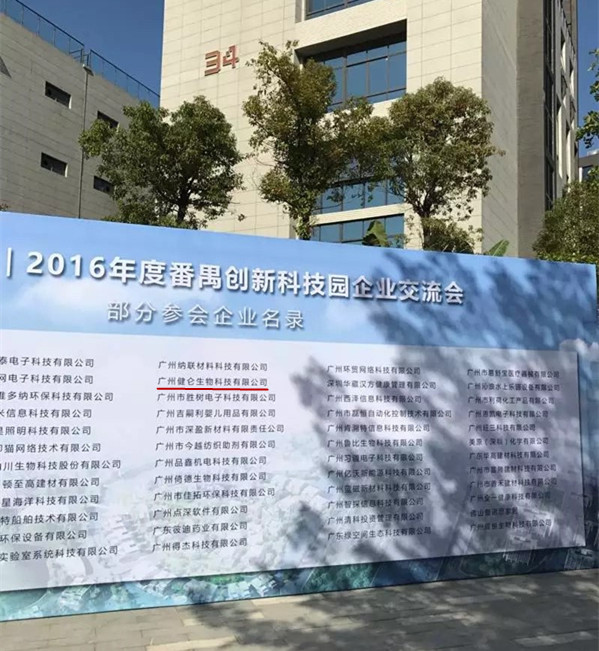- 产品描述
康氏立克次体IgM ELISA检测试剂盒
R. conorii IgM ELISA kit
广州健仑生物科技有限公司
主要用途:用于检测人血清中的康氏立克次体IgM抗体
产品规格:96T/盒
主要产品包括:包柔氏螺旋体菌、布鲁氏菌、贝纳特氏立克次体、土伦杆菌、钩端螺旋体、新型立克次体、恙虫病、立克次体、果氏巴贝西虫、马焦虫、牛焦虫、利什曼虫、新包虫、弓形虫、猫流感病毒、猫冠状病毒、猫疱疹病毒、犬瘟病毒、犬细小病毒等病原微生物的 IFA、MIF、ELISA试剂。
康氏立克次体IgM ELISA检测试剂盒
我司还提供其它进口或国产试剂盒:登革热、疟疾、西尼罗河、立克次体、无形体、蜱虫、恙虫、利什曼原虫、RK39、汉坦病毒、深林脑炎、流感、A链球菌、合胞病毒、腮病毒、乙脑、寨卡、黄热病、基孔肯雅热、克锥虫病、违禁品滥用、肺炎球菌、军团菌、化妆品检测、食品安全检测等试剂盒以及日本生研细菌分型诊断血清、德国SiFin诊断血清、丹麦SSI诊断血清等产品。
欢迎咨询
欢迎咨询2042552662

| JL-FL31 | 康氏立克次氏体IgM ELISA | Rickettsia conorii IgM ELISA Kit | 用于检测人血清中的康氏立克次氏体IgM抗体 |
| JL-FL32 | 斑点热立克次体IgG ELISA | Spotted fever group IgG ELISA Kit | 用于检测人血清中的斑点热立克次体IgG抗体 |
| JL-FL33 | 斑疹伤寒立克次体IgG ELISA | Typhus group IgG ELISA Kit | 用于检测人血清中的斑疹伤寒立克次体IgG抗体 |
| JL-FL34 | 鼠型斑疹伤寒立克次体IgG免疫荧光玻片试剂盒 | Rickettsia typhi IgG IFA Kit | 用于检测人血清中的鼠型斑疹伤寒立克次体IgG抗体 |
| JL-FL35 | 鼠型斑疹伤寒立克次体IgG ELISA | R. typhi IgG ELISA Kit | 用于检测人血清中的鼠型斑疹伤寒立克次体IgG抗体 |
| JL-FL36 | 鼠型斑疹伤寒立克次体IgM ELISA | R. typhi IgM ELISA Kit | 用于检测人血清中的鼠型斑疹伤寒立克次体IgG抗体 |
| JL-FL37 | akari立克次体 IgG ELISA | R. akari IgG ELISA Kit | 用于检测人血清中的akari立克次体IgG抗体 |
| JL-FL38 | parkeri立克次体IgG ELISA | R. parkeri IgG ELISA Kit | 用于检测人血清中的parkeri立克次体IgG抗体 |
| JL-FL39 | montanensis立克次体IgG ELISA | R. montanensis IgG ELISA Kit | 用于检测人血清中的montanensis立克次体IgG抗体 |
| JL-FL40 | EB病毒衣壳IgG免疫荧光玻片试剂盒 | EBV Viral Capsid IgG IFA Kit | 用于检测人血清中的EB病毒衣壳IgG抗体 |
| JL-FL41 | EB病毒衣壳IgM免疫荧光玻片试剂盒 | EBV Viral Capsid IgM IFA Kit | 用于检测人血清中的EB病毒衣壳IgM抗体 |
| JL-FL42 | EB病毒早期抗原IgG免疫荧光玻片试剂盒 | EBV Early Antigens IgG IFA Kit | 用于检测人血清中的EB病毒早期抗原IgG抗体 |
二维码扫一扫
【公司名称】 广州健仑生物科技有限公司
【】 杨永汉
【】
【腾讯 】 2042552662
【公司地址】 广州清华科技园创新基地番禺石楼镇创启路63号二期2幢101-3室
【企业文化】


因此,托雷茨基与研究合作作者、美国加州拉由拉市斯克利普斯研究所综合结构和计算生物学学院的皮特·怀特(Peter Wright)教授收集了所有有关集合体的生物物理学和蛋白质生物化学知识并写成了一篇评论文章。
研究作者表示这些集合体常常,但并非总是由内在紊乱的蛋白质组成,这意味着它们并没有特定的形状从而和其它蛋白质形成锁和钥匙的匹配关系。这些内在紊乱的蛋白质似乎会集合成一种类似凝胶的集合体——这个过程被称为“相位分离”,它能够围困并与其它蛋白质甚至RNA发生相互作用,RNA能够帮助编码和调节基因的生物分子。当它们的工作结束——无论具体是什么——这些集合体便会溶解。
直到近五年研究人员才开始意识到没有特定结构的蛋白质可能有着重要的转变特性,它或可能基于在细胞里的存在量而发生改变。托雷茨基怀疑如果这些集合体在疾病方面起着一定的作用,那么它们或可能以小分子为目标。“目前药物恢复的教条表明制造一个小分子以阻止两个结构蛋白质的相互作用是非常困难的。然而,小分子扰乱内在紊乱的蛋白质之间的相互作用的可能性则较高。”
“这篇评论将有关蛋白质交互的非常基本的生物学现象与潜在的新药物研发起来,这真是一项令人兴奋的挑战。” 托雷茨基认为。
**艾滋病病毒和恢复免疫功能的一个zui大障碍是,肠道中稳定的HIV库。关于早期病毒入侵和肠道病毒库建立的信息非常少。
现在,加州大学戴维斯分校的研究人员以猿猴免疫缺陷病毒(SIV)为研究对象,在病毒传染的zui初2.5天内,在肠道中检测到非常小数量的SIV感染细胞;然而,对病毒的炎症反应严重破坏了肠道内皮细胞。白细胞介素-1β(IL-1β)可减少紧密连接蛋白质的产生,它们对于制造病原体不能透过的肠道屏障至关重要。因此,正常的粘着屏障被打破。
通过深入挖掘,研究人员发现,通过IL-1β生产的炎症反应是在潘氏细胞内开始的,*这能保护肠道干细胞来补充肠上皮层。这是*报道SIV传染和IL-1β生产的潘氏细胞传感,这与早期病毒入侵过程中的肠道上皮损伤有关。反过来,上皮细胞破裂强调,有比免疫细胞更多的免疫反应。
Thus, Dr. Toretski and co-author of the study, Professor Peter Wright from the Institute of Structural and Computational Biology, Scripps Institution in Lara Luna, Calif., Collected all the information about the biophysics and Protein biochemistry and wrote a commentary.
The authors state that these aggregates are often, but not always, composed of intrinsically disorganized proteins, meaning that they do not have a specific shape and thus form a lock-and-key match with other proteins. These intrinsically disorganized proteins appear to assemble into a gel-like assembly - a process known as "phase separation," that can trap and interact with other proteins or even RNA, and RNA can help the organism that encodes and regulates the gene molecular. When their work is done - no matter what they are - these assemblies dissolve.
It was not until nearly five years that researchers began to realize that proteins without a specific structure may have important transitional properties that may or may not have changed based on the amount present in the cells. Tomatoes suspects that if these aggregates play a role in disease, they may or may target small molecules. "The current dogma of drug recovery shows that it is very difficult to create a small molecule that blocks the interaction of two structural proteins, however, small molecules are more likely to disrupt inner-protein interactions."
"This review is an exciting challenge to relate the very basic biology of protein interactions to potential new drug development," said Torretz.
One of the biggest obstacles to the total eradication of HIV and the restoration of immune function is the stable HIV pool in the gut. There is very little information about early virus invasion and establishment of the gut virus database.
Researchers at the University of California, Davis, now target simian immunodeficiency virus (SIV) and detect very small numbers of SIV-infected cells in the intestine within the first 2.5 days of virus transmission; however, the virus's inflammation The reaction severely damaged the intestinal endothelial cells. Interleukin-1 [beta] (IL-1 [beta]) reduces the production of tight junction proteins that are crucial for creating an impermeable intestinal barrier to pathogens. Therefore, the normal adhesive barrier is broken.
By digging deeper, the researchers found that the inflammatory response produced by IL-1β started in Paneth cells, which is well-known to protect gut stem cells from replenishing the gut epithelium. This is the first report of Panish cell sensing of SIV infection and IL-1β production, which is associated with damage to the intestinal epithelium during early virus invasion. In turn, epithelial cell rupture stresses that there are more immune responses than immune cells.



